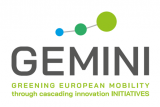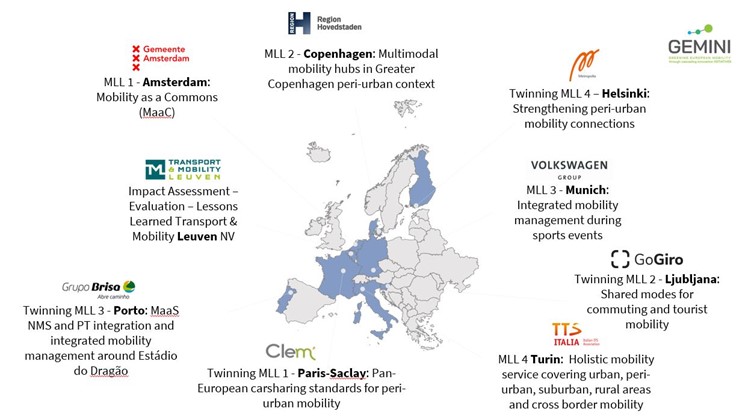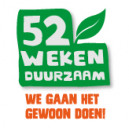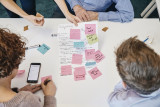Stay in the know on all smart updates of your favorite topics.
Revolutionise Recycling, Redefine Wealth: Seize the Opportunity with ByeBye Bed Limited and Reborn Products!

Greetings Trailblazing Visionaries,
Get ready for a seismic shift in sustainability! We're ByeBye Bed Limited, a force of innovation since 2019, experiencing a staggering 900% growth, and now we're inviting you to be part of our electrifying journey - Reborn Products.
The Powerhouse Behind ByeBye Bed Limited: Meet Paul Beckett, the maverick entrepreneur who saw a goldmine in recycling. His vision isn’t just about mattresses; it’s about transforming waste into a treasure trove of sustainable, retail-worthy products. The world is ready for this revolution, and we're leading the charge.
Dazzling Growth, Unstoppable Momentum: From a modest 6,000 sq. ft. to our current 60,000 sq. ft. facility, we've supersized our operation to revolutionise recycling on a grand scale. Brace yourself for a dedicated manufacturing facility that will catapult our capabilities into the stratosphere.
Reborn Products: Where Sustainability Meets Luxury: Our 'Reborn' products aren't just eco-friendly; they're a testament to style, comfort, and sustainability. From avant-garde mattresses to chic futon chairs and everything in between, we’re turning waste into opulence. Currently, 96% of our materials are recycled, making us the pinnacle of green innovation.
Crushing the Landfill Crisis: We're not just talking the talk; we're walking it, stomping on the UK landfill crisis that swallows almost 5,000,000 mattresses each year. We're not just recycling; we're redefining waste, turning it into a jaw-dropping spectacle of sustainability.
Financial Dynamo: Fueling the Future: Hold on tight because the next phase is a financial thunderstorm. We're not just enhancing the use of our recycled materials; we're rewriting the rules of industry, starting with furniture making. Imagine a world where our waste stream becomes the lifeblood of innovation.
Revolutionary Padding Material: Unleashing the Future: Introducing our game-changing padding material, birthed from our waste streams. It's not just 100% recyclable; it's a disruptor, challenging the status quo and reshaping the very fabric of eco-friendly living.
Invest in Tomorrow: ByeBye Bed Limited is the Future: This isn’t just a crowdfunding opportunity; it’s your ticket to invest in the future of sustainability. Join the movement, fuel the revolution, and be part of a success story that will be told for generations.
Social Impact: Building Lives, Breaking Chains: But wait, there's more! Our initiative with HMP isn’t just about recycling materials; it's about recycling lives. We're rehabilitating prisoners, re-skilling them for a triumphant return to society. And the best part? They potentially become integral members of our powerhouse workforce.
Your Invitation to Greatness: Investing in ByeBye Bed Limited and Reborn Products isn’t just about returns; it’s about being part of a seismic shift. This is your opportunity to be on the ground floor of something monumental.
Interested in More Details? Ignite the Revolution - Join Us Now: Email us for more details and become part of a future where recycling isn’t just responsible; it’s a lifestyle. Let's redefine waste, together.
Thank you for daring to dream big with ByeBye Bed Limited and Reborn Products.
GEMINI: Greening European Mobility through cascading innovation INItiatives

Context
At the heart of the GEMINI Project lies a commitment to fostering innovation and to accelerate the transition towards climate neutrality in mobility solutions.
Goal 11 of the UN Sustainable Development Goals advocates for access to safe, affordable, and sustainable transport systems. Nowadays, transport plays a significant role on air pollution and is one of the major sources of greenhouse gas emissions and is the only sector in the EU with increased Green House Gas (GHG) emissions compared to 1990.
The promotion of sustainable and innovative mobility solutions can help towards reducing GHG and carbon footprints, improving air quality, and achieving climate goals.
Project brief
The GEMINI Project (2023-2026 “Greening European Mobility through cascading innovation Initiatives” is a Horizon Europe funded project with 43 partners led by the Urban Electric Mobility Initiative (UEMI).
To accelerate the transition towards climate neutrality, GEMINI aims to foster widespread adoption of sustainable shared mobility solutions. To achieve this, the project will develop and test innovative business models for New Mobility Services (NMS) such as shared connected automated vehicles and shared mobility public transport through public-private partnerships. The NMS business models will be demonstrated in ten European Cities (Amsterdam, Copenhagen, Helsinki, Munich, Leuven, Ljubljana, Paris-Saclay, Porto and Turin).
Additionally, GEMINI will create digital tools and platforms that accommodate various mobility services, promoting collaboration and integration within the mobility sector. The project will actively engage stakeholders in the co-creation process, introducing Mobility as a Commons (MaaC) and incentivizing behavioural shifts and user acceptance of these new mobility options.

Furthermore, GEMINI will formulate policy recommendations to enable the scaling up and replication of successful mobility solutions. By aligning with Sustainable Urban Mobility Plans (SUMPs) and urban mobility planning frameworks, the project aims to contribute to a comprehensive policy package that guides and incentivizes future mobility innovations. The GEMINI project envisions fostering sustainable, accessible, and affordable shared mobility solutions that contribute to a safer and more environmentally friendly urban mobility landscape.
Objectives
- Develop and test sustainable business models for New Mobility Services (NMS) to increase shared mobility solutions (MaaS and MaaC) for various user groups, including enterprises, families, and tourists.
- Create digital enablers, including collaboration platforms and multimodal MaaS solutions, to integrate and facilitate a wide range of mobility services.
- Actively involve stakeholders in the co-creation of new mobility options and integrate Social Innovation practices to incentivize behavioural changes and user acceptance.
- Formulate policy recommendations to support the scaling up and replicability of successful mobility solutions, contributing to the development and implementation of SUMPs and urban mobility planning frameworks.
Cenex NL key contributions
The team plays a vital role in developing policy recommendations and technology roadmaps to accelerate the deployment of innovative mobility services. Through collaboration with local authorities in twinning cities, these roadmaps will align with the fast-track deployment of shared mobility trends in the short and medium term. Additionally, Cenex NL will contribute to the development of the Handbook consolidating the project’s learnings and offering practical guidance to cities and citizens across Europe.
This project has received funding from the European Union’s Horizon Europe research and innovation programme under grant agreement No 101103801.
Mobility Challenge: How do we make Carbon-neutral mobility to large events the norm?

The climate is changing and Amsterdam is getting busier and busier. We are faced with the task of keeping the city, including Southeast, liveable, safe and accessible at the same time.Various events, concerts, sports competitions attract millions of visitors to Southeast every year. To bring all these visitors to the city in a more sustainable way, the municipality of Amsterdam, Johan Cruijff ArenA, Ajax, NS, GVB, Transdev, Transport Region Amsterdam and Amsterdam Smart City have joined forces. Their ambition is to make CO2 neutral travelling to and from large events the norm by the end of 2023.
Alternating travelbehaviour requires a diverse coalition
The car is currently still the most widely used means of transport in Southeast. The transition to sustainable mobility requires cooperation between (semi)public and private parties and the strengthening of sustainable alternatives to the private car. While reducing car- and parking accessibility, and placing bycicle parking options lays within the power of the municipality, the public transport providers posess all travel data and have the power to expand their transportcapacity. Moreover, to convince the supporters and fans to change their behaviour, you need the direct communication power from Ajax (Football Club) and the Johan Cruijff ArenA. Hence, you could say the challenge within the challenge is to find new forms of collaboration, data sharing, and fine-tuning the alignment of measures.
Short and long-term measures
The coalition of partners have developed an action plan and analysed crowd-and travel behaviour. During 2023, these findings initiated the shaping of first measures to influence the mobility choices of visitors. During the first pilot event at the end of May, bike parking facilities will be expanded and group transportation will be aranged for those living in so called 'public transport desserts'.
When speaking of long(er)-term measures, one could think of time-adjusted public transport supply, personal (digital) travel advice, and campaigns through Ajax and its supportersbase to raise awareness and appreciation of car-alternatives.
How can parametric analysis optimise urban design of Schinkelkwartier - the best masterplan in the Netherlands in 2021

On Thursday, March 17 Grisha Zotov pitched some of the dilemmas his team encountered during the process of urban design. Among others, he touched upon densification and building height as aspects that influence intensity of human interaction.
Located in the former industrial zone, Schinkelkwartier is an example of inclusive and interdisciplinary redevelopment. Destined to be a diverse mix-use hub, Schinkelkwartier will develop in several phases during 25 years. At an early stage local stakeholders and neighbors of the area were involved.
On behalf of Architectural Prescription Grisha raised questions about opportunities and risks offered by water-related location and complexity due to the amount of interested parties.
Suggestions, ideas and feedback are always welcome.
Local or guest, reach out and share what you think!
User-Centered Public Engagement Toolkit

Open access toolkit of people-centered methods for urban planners, designers, and advocates to make cycling inclusive and accessible to all.
Code the Streets - Creating innovative solutions for sustainable, inclusive and safe mobility.

As Amsterdam’s metropolitan area continues to grow, so do traffic related issues such as congestion, crowded streets, and increasing pressures on fragile infrastructures. Just like cities worldwide, the City of Amsterdam is faced with the challenge of finding better ways to manage urban mobility. Code the Streets wants to support cities with this challenge by bringing together cities, mobility providers and science to create sustainable and inclusive mobility solutions that keep cities liveable, now and in the future.
Code the Streets is working on improving an already existing navigation app by adding data about school zones, fragile infrastructures, congestion and pollution. We want to stimulate car-users to choose an alternative route, for example one that avoids school zones or vulnerable city infrastructure. That way we work to towards a more sustainable way of driving and make the streets of Amsterdam safer and less crowded. Starting in autumn, we will be running pilot programs testing the application in Amsterdam. Interested in trying the app? Sign up here.
Code the Streets is an European EIT Urban Mobility Project bringing together partners from Amsterdam, Helsinki and Budapest to work on innovative solutions for sustainable, inclusive and safe mobility.
Note from ASC: What do you think? Let’s hear it in the comments!
52 weken duurzaam, we gaan het gewoon doen.

52wekenduurzaam nodigt je uit om je eigen leven stap voor stap duurzamer te maken. Een jaar lang iedere week een kleine verrassende en duurzame stap. Om te zien of het bij je past. Word je er gelukkig van, dan hou je het vol. Zo niet, dan skip je het. Wij onderzoeken wat er wel kan. Uitdagend, leuk, leerzaam en gratis. Loop je een stukje met ons mee?
Wij denken dat we met elkaar op een gemakkelijke manier veel duurzamer kunnen worden. Door elkaar te inspireren en uit te dagen. Door leuke en verrassende dingen te onderzoeken. Om zo je eigen versie van een duurzame leefstijl te ontwikkelen. We streven naar 5000 deelnemers in 2021. Hoe meer mensen meedoen, hoe beter. Voor onze Totale Impact Score, maar ook voor jezelf, want samen is veel leuker dan alleen. Dus geweldig als je nu al je gezin, je buren, vrienden en collega’s inspireert om ook mee te doen.
Wicked Problems

Te wicked? Niet voor ons.
Wij werken allemaal aan urgente, complexe, maatschappelijke uitdagingen. Issues die schier onoplosbaar lijken, van dilemma’s en paradoxen omgeven, nog niet duidelijk hoe het moet. Wel is duidelijk dát het moet, dat we elkaar nodig
hebben en dat we er NU aan moeten beginnen. Om met de woorden van Jan Rotmans te spreken; we leven niet in een tijdperk van verandering maar in een verandering van tijdperk. En hier hoort een nieuwe gereedschapskist bij.
En of je nou aan energietransitie werkt, andere mobiliteitssystemen, creëren van waterstofhubs, peer to peer autodeelsystemen, het maakt niet uit, we zien dat al deze opgaven op enig moment tegen gelijksoortige barrières aanlopen. Op samenwerking, financiering, privacy, onvoldoende aansluiting op de maatschappij, om maar een paar voorbeelden te noemen.
Unieke samenwerking
Als Amsterdam Smart City netwerk willen en kunnen we deze opgaven niet laten liggen. Door het bundelen van onze kennis en expertise kunnen we als netwerk iets unieks bieden en de wil en durf tonen om deze barrières te doorbreken. De betrokken partners die dit uitdenken en begeleiden zijn RHDHV, Kennisland, Drift, NEMO, Arcadis, Alliander, HvA en Metabolic. Zij bundelen hun expertise en ervaring om de echte vragen boven tafel te krijgen, tot nieuwe manieren van samenwerken te komen en barrières te doorbreken. We richten ons met name op de start van de samenwerking. Gezamenlijk ontwikkelen we een ‘wicked problem aanpak’. Op een nieuwe manier, lerend door te doen, exploratief.
Waar moet je aan denken?
Wat is eigenlijk het echte probleem? Wiens probleem is dit? Hoe kijken anderen er tegenaan? Welke andere partijen lijken nodig? Hoe vind je ze? Hoe ga je om met eigenaarschap en botsende frames? Hoe zorg je dat je al in
een vroeg stadium de maatschappij (bewoners, ondernemers, werknemers, etc) betrekt en hun ervaringen in het project trekt? Het wicked problem team zet nieuwe methoden in voor het beantwoorden van deze vragen. En het creëren van de benodigde commitment om het vraagstuk aan te pakken. Niets staat van te voren vast, want we passen ons aan aan wat we tegenkomen. Met elkaar ontwikkelen we een nieuwe aanpak om de barrières te doorbreken.
Stay up to date
Get notified about new updates, opportunities or events that match your interests.

